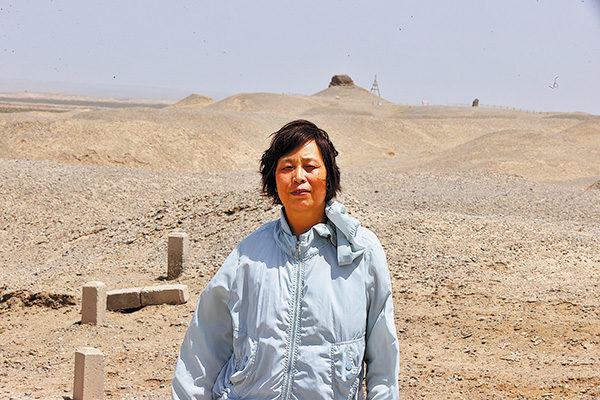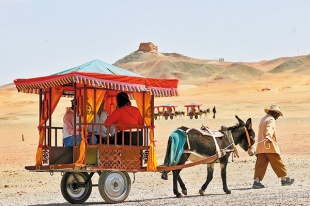Guardians of the Great Wall
Dedicated couple and teams of experts devote themselves to protecting and better understanding our heritage, report Fang Aiqing in Dunhuang and Ma Jingna in Lanzhou, Gansu.


Chen, 58, and her husband Zhang Jianjun have been living on the sterile land to guard the relics for 11 years. The bungalow, where they work and live, has not been left unmanned for a single day during this period.
They rely on solar power and a wireless network, and there's no running water. The alkaline water from the well nearby is tolerable for cooking, but they need to go elsewhere to fetch drinking water. They usually shop for groceries once a week.
Most of the time the wind emits a ghostlike wail and sounds as if someone, or something, is knocking on the door. On the rare occasions when the wind has exerted itself and needs to recharge its energy, it is replaced by the maddening buzz of mosquitoes.
After all these years, the couple may no longer have the ability to fall asleep in tranquility.
They inspect the relics regularly — their part of the Great Wall extends around 2 kilometers. If there's something wrong, they report to the cultural relics preservation department and let the experts come to inspect and maintain it.
Yet, Zhang Jianjun says, one of the most difficult aspects of their job is to keep wild animals — like oxen, horses, camels and donkeys — away from the wall in the dead of night. Oxen, particularly, like to use the wall to scratch itches brought by insects or parasites, further endangering its integrity. Therefore, the couple have to drive these animals away, a task that often has to be undertaken several times a night.
The situation was worse before. Chen says that, in the past, visitors were allowed to drive their own cars into the scenic area. That is no longer the case. Today, with a fence set up, broadcast and CCTV facilities installed, and shuttle buses available to ferry visitors around, their work of preventing damage has been made easier.





































